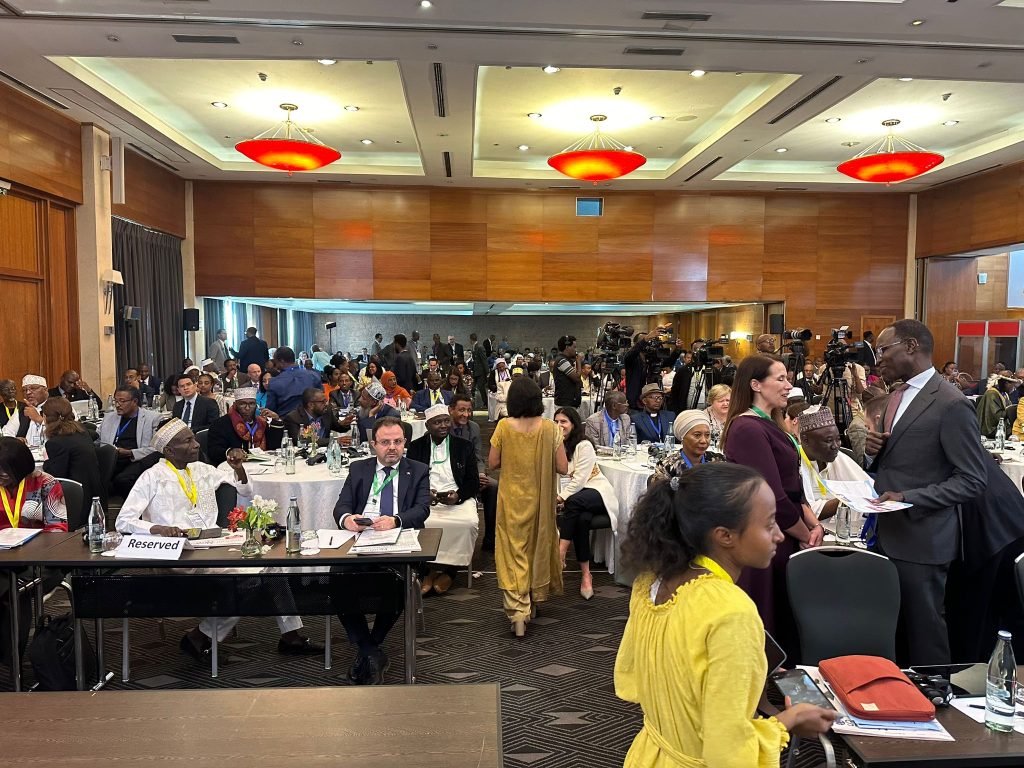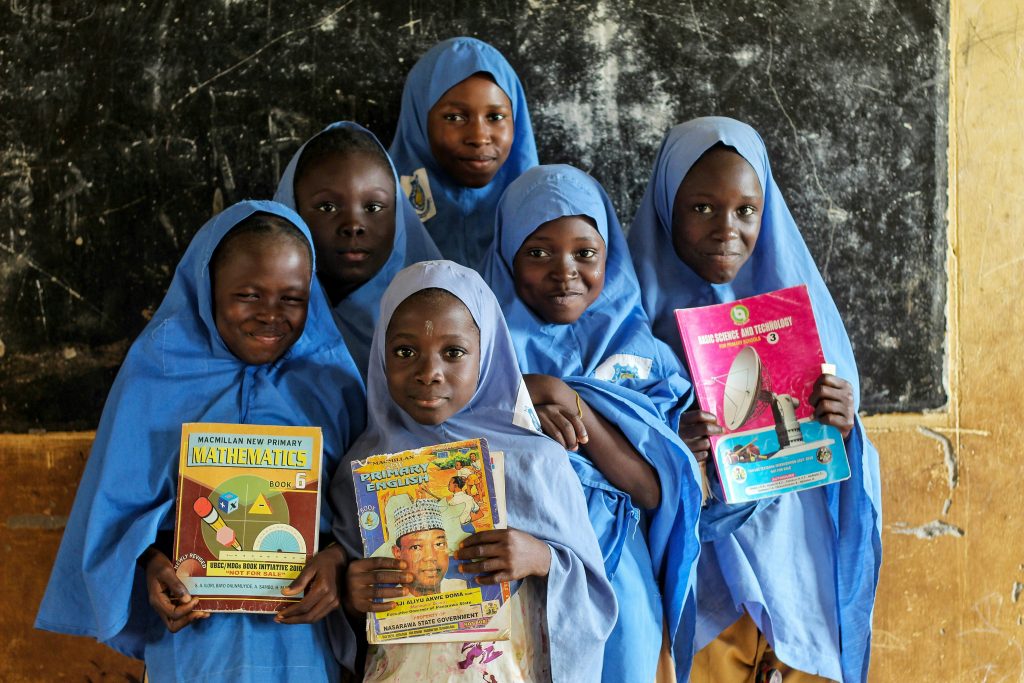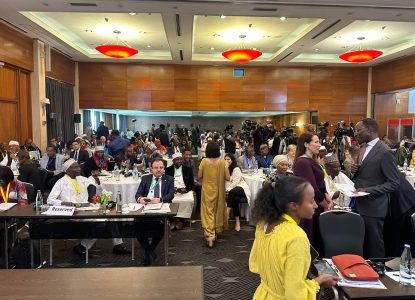By JoAnne Wadsworth, Communications Consultant, G20 Interfaith Forum
— —
On April 15-16, 2024, the G20 Interfaith Forum, in collaboration with the African Union, the United Religions Initiative (URI), and the Inter-Religion Council of Ethiopia, hosted a conference in Addis Ababa, Ethiopia, to celebrate the 2024 Golden Rule Day and commemorate World Interfaith Harmony Week. The event, themed “Africa’s 2024 G20 Agendas,” aimed to honor and promote interfaith collective action in Africa, fostering peace, human dignity, development, and preservation of the environment while countering hate speech, violence, and xenophobia.
As part of this broader conference, a panel discussion entitled “Africa’s Challenges to Peace and Security: Interreligious Approaches and Promise” was held on April 15. This session addressed the urgent need to focus on conflicts across Africa amidst the global security megacrisis of 2024. The panel explored how religious and interreligious dialogue and active peacebuilding could offer creative solutions to mitigate the enormous human suffering, worsening challenges for women and children, and derailed development progress caused by these conflicts. The discussion aimed to highlight approaches that both the African Union and G20 could support and spotlight.
Panelists included Dr. Martha Njiiri, Head of Strategic Communication at IGAD Center of Excellence for Preventing and Countering Violent Extremism; Sister Agatha O. Chikelue, Executive Director of Cardinal Onaiyekan Foundation for Peace; Dr. Gordon Simango, Director of the All Africa Conference of Churches Liaison Office to the African Union; Birtukan Mitiku, Peacebuilding Officer at Catholic Relief Service; and Joshua Kitakule, Secretary General of the Interreligious Council of Uganda. The discussion was moderated by Prof. John Azumah, Executive Director of the Sanneh Institute.

Prof. John Azumah
Azumah opened the discussion by highlighting the paradox of Africa being considered highly religious yet facing significant challenges:
“Africa is one of the continents that we have heard many people talk about with pride. Africa is the most religious continent. And I used to say that with pride also. Pope Benedict once said that Africa is the spiritual lungs of the world. And I have stopped saying that Africa is the most religious continent with pride because of all the issues that Africa is facing, despite being the most religious continent.”
Dr. Martha Njiiri
Njiiri emphasized the importance of countering extremist narratives and working with religious leaders:
“Currently there are meta narratives that they misuse, to be able to radicalize and to recruit, unfortunately, and the most affected are the youth. And in some instances, we are seeing children who are being recruited into these groups.”
She stressed the need for interfaith cooperation in developing counter-narratives and highlighted the credibility of religious leaders as messengers for peace.
Sister Agatha O. Chikelue
Chikelue focused on the interconnection between justice, peace, and security:
“When you talk about justice, then you are talking about peace. You cannot separate the two sides of one coin. And that is the issue we’re here to discuss.”
She emphasized the need for religious leaders to work proactively with governments to address issues of bad governance, poverty, and inequality.
Dr. Gordon Simango
Simango highlighted the importance of investing in youth education on peace and security issues:
“One of the most important things is really to make sure that we try and invest in the children and the young people in peace and security issues. I think most of the discussions that we actually have around tables, we realize that we are missing them.”
He also stressed the need for a common understanding of concepts like hate speech and the importance of non-violent approaches in peace and security architectures.

Birtukan Mitiku
Mitiku emphasized the role of interfaith dialogue in promoting peace:
“Interfaith dialogue is important for peace because it can help to break down the walls of division and promote mutual understanding, acceptance and tolerance.”
She called for collective efforts to challenge discrimination and promote peace at the individual level.
Joshua Kitakule
Kitakule emphasized the need for religious leaders to be better equipped to address societal issues:
“Have we [as religious leaders] been given capacity, trained, on how to deal with these other issues that you are confronted with before you go to heaven? Issues of governance, issues of poverty, issues of disease, issues of managing diversity? Do we have the tools? Do we have the knowledge, do we have the awareness of what needs to be done? Because we are here [on Earth] not just as visitors. People live as long as 90 years before they go to heaven. So maybe we need to go back to the basics.”
He also highlighted the lack of safe and inclusive spaces for dialogue between faith communities and political leadership.
Q&A Session
The Q&A session delved into various topics, including:
- The need for formal mechanisms of engagement between religious councils and governments
- The importance of addressing intra-religious conflicts before tackling inter-religious issues
- The role of African values in education and peacebuilding
- The potential for faith-based early warning systems for conflict prevention
- The challenge of election-related violence and the role of religious leaders
Conclusion
The panel discussion highlighted the complex challenges facing peace and security in Africa and the potential for interfaith approaches to contribute to solutions. Key takeaways included the need for:
- Greater youth engagement and education on peace and security issues
- Improved interfaith dialogue and cooperation
- More proactive involvement of religious leaders in governance and electoral processes
- Revival and integration of African values in education and peacebuilding efforts
- Enhanced capacity building for religious leaders on socio-economic issues
As Africa continues to navigate its peace and security challenges, the insights and collaborative efforts of religious leaders and faith communities will be crucial in fostering understanding, countering extremism, and building sustainable peace.
— —
JoAnne Wadsworth is a Communications Consultant for the G20 Interfaith Forum Association and Editor of the Viewpoints Blog.


